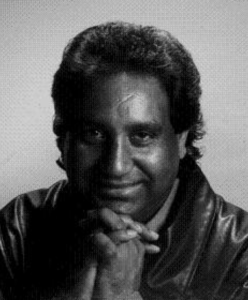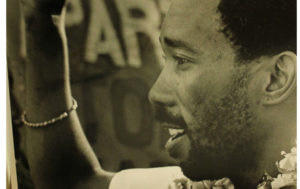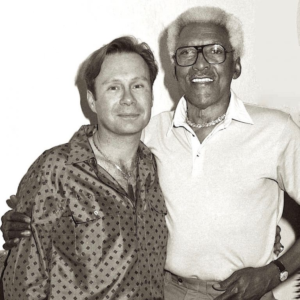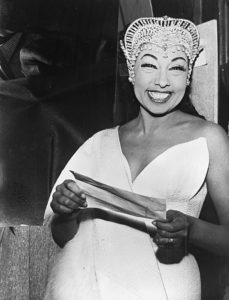Many of us are not taught about historical LGBTQ+ figures, particularly if they are of colour, they have been erased from the curriculum and sometimes even history because of their sexuality and ethnicity.
Yet the people history chooses to forget are often the reason we are able to exist today. They began movements, conversions or organisations that affect many of our lives. Below are small biographies of four such people who deserve our recognition to inspire you to learn about the LGBTQ+ figures history forgot.
Ifti Nasim
The gay Pakistani poet immigrated to the US to escape persecution in 1996 where he spent the rest of his life. His poetry is said to be the first direct statement of gay desires to be produced in Urdu and frankly discussed the issues around the tolerance for homosexuals in Islam.

Nasim founded Sangat Chicago, an organisation to support and educate young South Asian homosexuals. He wanted to open the discussion beyond gay men to include all sexualities on the spectrum, this created a huge impact for the youth of Chicago.
In 1993 he was the first poet from a developing country to present his work at Chicago’s Harold Washington Library Center and received a number of awards for his poetry. Ifti Nasim laid the groundwork for the South Asian community in Chicago and created a space across the globe for LGBTQ+ Muslims. His legacy is felt throughout the community as the forefather for queer Muslim acceptance and the continued fight for equality.
Simon Nkoli
Nkoli faced the struggle of being both black and gay in South Africa, many gay organisations would not support his fight against the Apartheid while the black community condemned his homosexuality – yet he refused to separate these two parts of himself.
In 1984 he was arrested at a protest and faced the death penalty for treason, then, when his sexuality was made public, his fellow prisoners fought for a separate trial in fear that his homosexuality would condemn them. Nkoli convinced them that this was of little relevance in the wider social picture, and they stood trial together. Four years later all charges were dropped yet he was expelled from the Gay and Lesbian Association of South Africa.

Nkoli founded the Gay and Lesbian Organisation of the Witwatersrand (GLOW) which led Johannesburg’s first Pride March in 1990 fought for LGBTQ+ rights in South Africa. After testing HIV positive, Nkoli increased his work to destigmatize AIDS and founded Positive African Men where he died at the age of 41. He was the first gay activist to meet with Nelson Mandela and laid the foundations for gay rights in South Africa, he was a great leader and changemaker who stood tall in his unique struggle.
The 1st – 7th February was National Aids Week in England. This week is used to promote regular testing amongst the population. Regular testing aims to reduce the number of people in England living with undiagnosed HIV. To request a free HIV test in the UK click here or here. For HIV support please visit The Terrence Higgins Trust. Also see Positively UK for more information including gay men’s wellbeing, dealing with a diagnosis, to learn more about HIV or to donate.
Bayard Rustin
Rustin was a leader of the civil rights, socialism, gay rights and pacifism movements. He was a close friend and advisor to Martin Luther King, helping to organise the March on Washington, yet is rarely accredited because of his sexuality.
His status as an openly gay man was used as ammunition against him and King, with opposition threatening to spread lies about their relationship and asserting that he was an immoral influence, this is why he moved into the shadows of the movement.
He was also a humanitarian missionary, aiding refugees from Vietnam and working in Haiti where he died in 1987.
President Obama posthumously awarded Rustin the Presidential Medal of Freedom in 2013. His power was instrumental to the civil rights movement, yet he is rarely remembered due to his sexuality forcing him into the shadows.

Josephine Baker
Born in 1906 Missouri, Baker was a bisexual Jazz performer and entertainer who took advantage of her platform to advance the rights of many minority groups. She struggled with a love for both France and the USA, moving between the two throughout her life. Yet in America she faced much wider discrimination.
Baker refused to play at segregated venues and worked closely with the National Association for the Advancement of Coloured People during the 1950’s.
During World War Two she served France as a spy, hiding Jewish refugees in her chateau and divulging secrets that she discovered whilst performing for German soldiers. Baker utilised her celebrity status, knowing that she would never be strip searched. She hid notes and photographs in her underwear.

In 1945 Baker was awarded the Croix de Guerre and the Rosette de la Résistance in addition to being named a Chevalier de Légion d’honneur, the highest decoration for military and civil action. It is said that she engaged in a number of affairs with women, including Frida Kahlo, throughout her life and continuously confronted norms of acceptability in her dancing and dress. One of her twelve adopted children suggests that during the 1930’s her dance style was an early example of voguing.
Josephine Baker was an often-forgotten fighter for racial and sexual equality, she put her life on the line to stand up for minority groups and remains one of the most influential African American women in history.
By Tegan Davis
Sources:
https://www.them.us/story/josephine-baker-activism-history
https://www.nationalgeographic.com/news/2018/06/historical-lgbt-figures-activists-culture/
http://chicagolgbthalloffame.org/nasim-ifti/
https://www.makingqueerhistory.com/articles/2019/2/26/simon-tseko-nkoli
https://legacyprojectchicago.org/person/simon-tseko-nkoli
https://www.sahistory.org.za/people/simon-nkoli
https://makinggayhistory.com/podcast/bayard-rustin/
